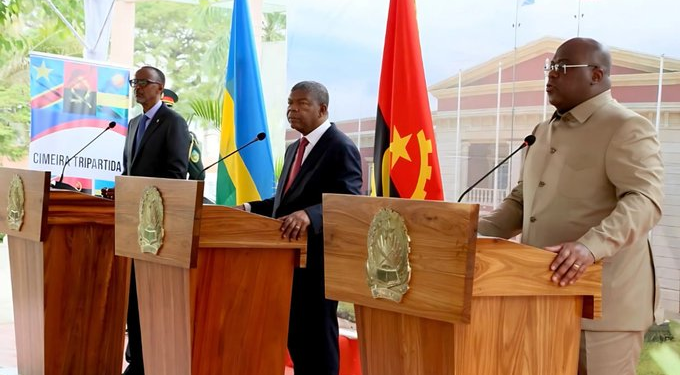Angola has officially ended its role as the key African Union (AU) mediator in the conflict involving Congolese M23 rebels, the Democratic Republic of Congo (DRC) government, and Rwanda, the Angolan presidency announced on Monday.
In a statement, President João Lourenço’s office cited his new responsibilities as AU chairperson, a role he assumed in February, as the primary reason for stepping back from mediation efforts.

The decision follows the collapse of scheduled direct talks between the M23 rebels and the DRC government in Luanda on March 18. The rebels withdrew from the meeting, citing European Union sanctions imposed on several of their senior leaders.
“Two months after assuming the chairmanship of the African Union, Angola believes it is time to step back from its role as mediator in the DRC conflict,” the statement read.
It further stated that efforts were underway with the AU Commission to identify a new head of state who could take on the mediation role, supported by the Southern African Development Community (SADC), the East African Community (EAC), and designated facilitators.
Chairperson of the AU Commission, Mahmoud Ali Youssouf, acknowledged Angola’s leadership in fostering dialogue through the Luanda Process. He praised President Lourenço’s commitment to peace, de-escalation, and confidence-building between the warring parties.
Through his mediation efforts, Lourenço had successfully convinced the Congolese government—initially opposed to direct negotiations—to engage with the M23 rebels, who are alleged to have Rwandan backing.

The Luanda Process previously led to a ceasefire agreement during a ministerial meeting on July 30, 2024, with the truce taking effect on August 4.
Meanwhile, last week, DRC President Félix Tshisekedi and Rwandan President Paul Kagame held unexpected talks in Doha, facilitated by Qatar’s Emir Sheikh Tamim bin Hamad Al Thani.
Amid ongoing conflict, the UN reported that over 100,000 Congolese have fled to neighboring countries in the past three months.









